The Itsekiri Survival Movement (ITSURMOV) in their various internet press releases claimed to own Warri sans the provision of any substantive proof. These sporadic, but subtle claims embedded in the body of their messages and the constant footnote reminders of ownership of Warri, that accompany each of their publication, are in our opinion, a shrewd psychological ploy designed to lend credence to their claim. This practice is predicated on the premise that, if you repeat a statement often enough without any credible opposition people might tend to, or validate the statement as true.
Under the circumstances, THE COUNCIL OF IJAW ASSOCIATIONS ABROAD is compelled to counter ITSURMOV’s relentless pursuit to indoctrinate unsuspecting Nigerian netters resident abroad and other concerned nationalities who surf the web to keep abreast of the events in the Niger Delta, with misleading land ownership claims. We present here, historical FACTS, not isolated frivolous court judgements, but authentic verifiable evidence that identified the true owners of Warri. We would like to state that, we do not construe the exposition below as a justification for the mayhem in Warri, nor do we condone the wanton destruction of properties and loss of lives in the Warri crisis. This is merely an exercise in the dissemination of pertinent information, which in our view will assist in unraveling some of the mystery surrounding the immediate causes of the Warri crisis. Pursuant to this objective, we shall also present here remote incidents that served as precursors to the present day unrest in Warri and her environs.
ALSO READ: Gbaramatu youths evacuate Chevron, Itsekiri from Abiteye, Utonana and Makaraba flowstations
In our attempt to avoid bias and prejudice to the reader, we shall refrain from unnecessary editorial while presenting the FACTS. We believe that individuals can draw reasonable conclusions on the basis of the facts being provided.
ANCESTRAL HOMELAND OF THE ITSEKIRIS
History has it that, IGINUA (GINUWA) the ancestor of the ITSEKIRIS was a disowned son of Oba Olua of Benin. As a result, in 1480 Iginua was sent away from his home in Benin City and wandered to an unspecified location in the swampy forest regions around the Benin River. By a stroke of fate, he was picked up by the Ijaws of that region in their evil-forest referred to as ‘SEIKIRI’. The Ijaws, in their usual act of kindness provided transportation to Iginua and his entourage, numbering about seventy people, all men, across the river to the Ijaws homeland of AMATU. This is the settlement were Iginua and his entourage underwent their first rehabilitation.
This view is supported by the account given by a British national and former professor of history at the University of Ibadan, Professor Allan Ryder, in his book titled “BENIN AND THE EUROPEANS 1485 – 1897”. Chapter one, page 13 of the book reads, “Tradition relates that OLUA’S eldest son, IGINUA, became extremely unpopular in Benin where it was made clear that he would not be accepted as Oba. His father therefore…. sent him off…. into the swamp forest around the Benin River. Around this wandering band formed the embryonic Itsekiri Kingdom…”. Note the reference is to Itsekiri Kingdom and not Warri Kingdom. In yet, another book titled “HISTORY OF THE ITSEKIRI” written by a renowned Itsekiri historian, William A. Moore, came more revelations. He wrote, “Prior to the advent of the Benin Prince Iginua, the territory now known as the Kingdom of ITSEKIRI or IWERE, was inhabited by three tribes, namely, Ijaws, Sobos and the Mahims. The most populous among them were the Sobos. They (Sobos) occupied the hinterland while the Ijaws occupied the coastline and the Mahims squatted on the seashore near the Benin River…. Prince Ginuwa first landed at Amatu where he squatted for about three decades. He moved to Oruselemo where he married an Ijaw woman named Derumo. After several years stay at Oruselemo, a dispute arose between him and the Ijaws of Gulani (Ogulagha) on account of the woman, Derumo who was killed by him…..He therefore moved to Ijala where he later died and Ijijen (Ijeyem), his senior son took his place. Hence Ijala is held to be the Olu’s burial ground by the Itsekiri. Ijijen led the entourage from Ijala to Iwere or Ale-ode-Itsekiri….” The settlement at Ode-Itsekiri, the ancestral homeland of Itsekiris occurred at about 1520AD.
IGINUA and his entourage haven been picked up in that portion of the forest known to the Ijaws as ‘evil-land’ were aptly named by the Ijaws as “SEIKIRI-OTU”, meaning people from the ‘evil-land’. ‘SEI’, in Ijaw language means ‘EVIL’, ‘KIRI’ means LAND, while OTU means PEOPLE. Similar Ijaw compound words that are descriptive of land that, some of the readers would recognize are; AMAKIRI, BOROKIRI, TORUKIRI, TARAKIRI, DAUKIRI etc. With the passage of time, SEIKIRI-OTU became adulterated to ITSEKIRI by the non-indigenes, but the Ijaws to-date, still maintain the usage of SEIKIRI-OTU in reference to the descendants of IGINUA. Thus, ITSEKIRI, is not a derivative of either an Edo(Bini) or Yoruba language, but of an Ijaw word that underwent an innocent transformation.
It is a sad commentary that, today the descendants of Iginua are claiming ownership of the territories of their benefactors with utter disregard to the magnanimity of their hosts. How ungrateful or low could one get? We would like to remind these descendants that “those whose palm kernels were broken for them by a benevolent spirit should not forget to be humble.” History surely will not forgive them, should they continue in their path of self-aggrandizement.
THE MAKING OF WARRI METROPOLIS
According to oral history passed from one generation of Ijaws from Ogbe-Ijoh to another generation, Warri, a corrupted version of the Ijaw word, “Wari”, which means house, was founded by an Ijaw man named Ewein, a great hunter and fisherman.
In 1906, with the rapid growth in trading activities, the British acquired Ogbe-Ijoh village (an Ijaw community) in order to develop it as “whites only” residential area and headquarters of her Warri Province Administration. The people of Ogbe-Ijoh were resettled on the Ogbe-Ijoh market and the British signed a 99years lease with the Ogbe-Ijohs. However, the Ijaws felt humiliated by the forced eviction and the handling of the land acquisition. The then Governor of Benin River, a British political agent who handled the acquisition and ejection of the Ijaws was Chief Doru (Dogho) Numa, an Itsekiri man. The above incident probably marked the beginning of the bad blood between the Ijaws of Warri and the Itsekiris.
Upon completion of their offices, the British named the new headquarters Warri Township and since then Ogbe-Ijoh officially became known as Warri Township. Even then, the Colonial government granted all leases to individuals and corporate entities in the name of Ogbe-Ijoh. Today, the name Warri Township covers other nearby villages including the Government Reservation Area-GRA, Elders town, Market road and the portion of lands specified in the Warri Township Plan No. 1. Further collaboration is provided by the Warri Township assessment report prepared by one Mr. P. P. Lynch in July 16, 1928 and sent to the Secretary Southern Provinces, Lagos. The report is available at the National Archives, file No. 20653. The report, in part, reads; “The original settlement which in due course became the nucleus around which the population settled is known as Ogbe-Ijoh and the name is still retained to define that portion of the town around the present market. As the name indicated Ogbe-Ijoh was originally an Ijaw settlement and translated literally means, I am informed ‘The Ijaw fish market’.……The Ijaw fisher more always at home in them canoes than on land fished up and down the stretch of water which now forms the Warri enchorage and made use of the settlement to sell their catches. In the main the purchasers came firm the Old Established Sobo hamlet of AGBASSA and the more recent Jekri village of Okere. ….Beyond the swamp, in a westerly direction, stood the comparatively large village of AGBASSA while on the side the growing hamlet of Okere was rapidly extending its boundaries… intercommunication between these villages and the riverside settlement was maintained by means of “bush” paths which meandered around the edge of the swamp.”
By contrast, Ode-Itsekiri, the ancestral homeland of the Itsekiris, is an Island community several kilometers away from Warri metropolis. As a reminder, Ode-Itsekiri is part of the ‘Seikiri’ that was eventually given to their ancestor, Iginua. It is informative to note here that, Ode-Itsekiri, the “Warri” of the Itsekiris is often erroneously referred to as Old Warri or Big Warri. This is the Warri or Iwere referred to in history books as the capital City of the Itsekiris.
EARLY WARRI ADMINSTRATIVE DOMAINS
In the pre-independence elections, Ijaws and Urhobos voted for late Dr. Nnamdi Azikiwe’s National Council of Nigeria and the Camerouns, NCNC, while the Itsekiris voted for late Chief Obafemi Awolowo’s Action Group, AG. Fortunately, for the Itsekiris, AG won the election in the Western Region and that marked the rise of Itsekiri political dominance. With their new political allies in AG, the Itsekiris mounted pressure on Chief Awolowo to create chieftaincy titles among the Itsekiris to reflect monopoly of lineage in Warri and also to establish a communal land trust for the Itsekiris.
Not to be perceived as been ungrateful to the Itsekiris for their support at the polls, Chief Awolowo succumbed to the pressure to elevate the status of the Olu of Itsekiri in par with other traditional rulers. Such as, Olu of Ibadan, Oba of Lagos, Ooni of Ife, Oba of Benin etc., whose titles reflect overlordship over territories. In 1952, the Itsekiri people’s dream came true when the title of Olu of Itsekiri was changed to Olu of Warri. This prompted the 1952 riot of Warri which was marked by loss of lives and properties and also led to the expulsion of Itsekiris from Abraka, Eku, Kokori, Sapele etc., all Urhobo lands.
After the riot, what followed was series of law suit between the Itsekiris and the Ogbe-Ijohs. Chief Okotie-Eboh, a prominent Itsekiri son, then Federal Minister of Finance intervened. So, the litigious parties agreed to settle out-of-court. But, to the surprise of the Ijaws, the Itsekiri Communal Land Trust, in 1959, took control of the Land deed of 1906 and subsequent ones and started removing traces of Ogbe-Ijoh from the town and substituting in their place Itsekiri names.
Despite the far reaching implication of the title, Olu of Warri, and the influence of the Itsekiris, the Government of Western Region of Nigeria under the leadership of late Chief Obafemi Awolowo made provision for the exclusion of the Ijaws of Warri from the authority of the Olu of Warri. The legal provision is contained in the WESTERN REGION OF NIGERIA “CHIEFS LAW of 1957 Cap 19”. With the creation of Bendel State, the chiefs law became applicable in Bendel State, but recapped as Cap 37 of 1977 in the LAWS OF BENDEL STATE OF NIGERIA now applicable in DELTA STATE.
The Chiefs Law of 1957 Cap 19 states: “The Olu of Warri is the prescribed authority of the Warri Division excluding Egbema, Gbaramatu and Ogbe-Ijoh Council Areas.”
More succinctly put, the people of Gbaramatu, Ogbe-Ijoh, Egbema and Isaba Clans and their lands are excluded from the authority of the Olu of Warri and Itsekiris.
The autonomy of the Ijaws of Warri in the then Western Region Government of Chief Awolowo was further stipulated in the legal instrument, WRLN 176 OF 1955, which established Warri Divisional Council. The following is the make up of the seven councils:
Benin River Local Council, Headquarter at Gbokoda (Itsekiri)
Koko Local Council, Koko (Itsekiri)
Ugborodo Local Council, Ugborodo (Itsekiri)
Gbaramatu Local Council, Oporoza (Ijaw)
Ogbe-Ijoh Local Council, Ogbe-Ijoh (Ijaw)
Egbema Local Council Opuama (Ijaw)
Warri Urban Local Council, the seventh one was made up of Itsekiris, Urhobos and the Ogbe-Ijoh, and the rest of the Ijaws of Warri. Over the years, these autonomous Ijaw councils have been gerrymandered into Itsekiri districts, through the evil genius of the Itsekiris in collaboration with those in the Federal Government bent on depriving the Ijaws off their oil wealth. Today, the Ijaws of Warri no longer control or have an autonomous council they can call theirs.
Furthermore, the Warri Urban District Council, of 1952, established by WRLN, 177 of 1955, clearly delineated the electoral wards of Ogbe-Ijoh in Warri as, Ogbe-Ijoh Ward C1, Ward C2 and Government Area F1. These wards unfortunately, as of the registration exercise of 1998 have ceased to exist. No thanks to the Itsekiri’s relentless quest to wipe out traces of Ijaw from Warri. These wards have now been replaced with Itsekiri wards. More troubling also is the inclusion, in the registration exercise of 1998, of Itsekiri villages of Ode-Itsekiri, Orugbo, Obodo and Omadino as wards in the Warri Metropolis merely to give the Itsekiris the advantage of controling the Warri Urban Council. These villages are outside Warri Metropolis.
Under Bendel State, Warri Division Council had five officially recognized Traditional Rulers with equal status. Gazette No. 51 Vol. 14 of 15 September, 1977 listed them as follows:
(a) The Olu of Warri (Itsekiri)
(b) The Pere of Egbema (Ijaw)
(c) The Pere of Ogbe-Ijoh (Ijaw)
(d) The Pere of Gbaramatu (Ijaw)
(e) The Pere of Isaba (Ijaw)
The above five Traditional Rulers representation was the same for the former Warri Local Government Area and the defunct Warri North and Warri South Local Government Areas. As of 1998, Delta State Traditional Councils of Chiefs includes the Pere of Egbema, the Pere of Ogbe-Ijoh, and the Olu of Warri as members. Traditionally, Obaship, Pereship and Ovieship are tied to the lands. As such, each of these five Traditional Rulers in Warri area has exclusive authority and overlordship over the lands they occupy.
Ironically, the land in Warri, on which the Olu of Warri’s only palace is built, is privately owned. Leased to Wilson Gbesimi Emiko (Erejuwa 11) by Omagbemi for the Ewelofu of Ekurede-Itsekiri. In essence, the Olu of Warri, the Traditional Ruler of the Itsekiris whose ancestral homeland is Ode-Itsekiri, is a Ruler in exile and had to administer by remote control from Warri. It is unimaginable or an anathema for the Emir of Kano, Oba of Lagos, Oba of Benin, Oni of Ife, or any Traditional Ruler for that matter to buy land for any purpose in their respective domains. Yet, the Olu of Warri had to do just that, an indictment to the status of Itsekiris in Warri.
The fact that Ijaws of Warri are not settlers or tenants in Warri, but autonomous was affirmed by one of the eminent Itsekiri sons, Mr. A. O. Rewane. His affirmation is contained in suit No. LD/784/90 filed in a Lagos High Court, Lagos judicial division, in a case between him and other prominent Itsekiri leaders. His plead, in part, states: “The plaintiff will in this regard therefore contend that the Ijaw Clans such as Gbaramatu, Ogbe-Ijoh, and Egbema were never at any time under the autonomy of Olu of Warri as a prescribed authority.”
To the best of our knowledge the landmass of Gbaramatu, Ogbe-Ijoh, Egbema and Isaba Clans have not changed, but have remained contiguous for centuries. It is therefore quite unsettling that the Itsekiris would continue in their path of self-delusion about ownership of Warri.
ITSEKIRIS POLITICAL INTRIGUES
The bane of the crisis in Warri is rooted in the unyielding desire or insatiable appetite of the Itsekiris to dominate or oppress other ethnic groups in Warri, particularly, the Ijaws and the Urhobos. Chief Benjamin O. Okumagba, the Otota of Okere-Urhobo Clan, have for decades, been on the vanguard of the struggle against the Itsekiris’ oppressive and domineering agenda.
On the Ijaw side, Chief E. K. Clark has been equally gallant in his efforts to checkmate the aristocratic Itsekiris’ ‘apartheid mentality.’
Below are few examples of Olu of Warri and the Itsekiris political maneuvers:
In 1976, there were twelve councils in Warri Local Government Area of then Bendel State. Six of these were Itsekiris, four were Urhobos and two Ijaws. For the council chairman position, an election is required among the twelve councilors. The Itsekiris realizing an impasse in the event of an election, engineered, at the Federal Government level, the transfer of one of the councilors representing an Ijaw constituency, Tsekelewu to Ondo State. Thus, Tsekelewu, a major oil-producing community was transferred out of Delta (then Bendel State) State, merely to satisfy the ambitions of the Itsekiris.
In 1980, the Ijaws of Warri requested for a separate Local Government Area, LGA when the Unity Party of Nigeria, UPN (Chief Awolowo’s party) came to power in Bendel State. But, the Itsekiris flexed their muscles in the UPN to have the UPN controlled government of Professor Ambrose Ali in Bendel State, transfer the Ijaws in Warri LGA to Burutu LGA. As usual, the Ijaws protested and petitioned the Bendel state government, but all was to no avail. So, for three years, the Ijaws of Warri with their landmass, we might add, were merged with Burutu LGA. This action begs the question, if the Itsekiris, per their claim, owned Warri, why then did they orchestrate the merger of Ijaws of Warri into Burutu LGA? Would they have been so enthusiastic or supportive of such a move if the land was truly theirs’? What if, during this period the Ijaws of Warri were merged permanently with their kith and kin in the Rivers State? The fact that the Itsekiris were so eager to send the Ijaws packing further demonstrated the falsehood and absurdity in their claim of ownership.
The year 1983 ushered in a change of guard in Bendel State. The National Party of Nigeria, NPN won the election in Bendel and took over the reign of power there. Again, the Ijaws petitioned for a LGA, but to the credit of the second time Governor of Bendel State, Brigadier (Dr) Samuel Ogbemudia, only succeeded in bringing the Ijaws of Warri back to Warri LGA. Not surprising, the Olu of Warri and the Itsekiris were furious at Governor Ogbemudia and resorted to intimidation and blackmail of the person and office of the Governor.
The Federal Government, in 1991, under General I. B. Babangida’s administration approved the creation of Neinbe Local Government Council for the Ijaws of Gbaramatu Clan, with Headquarters at Oporoza. But, prior to the announcement, the Olu of Warri with his aristocratic Itsekiris employed their usual modus operandi to effect the re-location of the headquarters to Koko, an Itsekiri community, and renamed it Warri North LGC. In effect, the Ijaw Clans who were originally administered under Warri LGC must now travel to Koko to conduct official business with the LGC. A typical, journey by a Gbaramatu man to Koko entails a journey through the Escravos to Warri, then by land through Sapele Local Government, Ethiope Local Government before arriving at his destination, Koko. The Federal Government upon realizing the unfairness and injustice to the Ijaws, ordered that, the Ijaws of Gbaramatu, Ogbe-Ijoh and Isaba Clans be transferred back to Warri South Local Council. The State Government, under the Civilian governor of Chief Felix Ibru complied with the directive. But, the Olu of Warri and the Itsekiris acting true to their nature, resorted to their no-holds-barred tactics of character assassination of the governor. In addition, they mounted ingenious stumbling blocks in the way of the directive.
First, the Itsekiris manipulated themselves into the two council chairmen position in Warri South and Warri North LC. Then the Olu instructed the chairmen to disobey the State directive. To effect the disobedience, the two councils were to sue themselves and the State government, which they did. Next, the Itsekiris took the Federal Government to court at Abuja to effect the reversal of her directive. All these legal maneuvers effectively shut-out the three Ijaw Clans from participating in the affairs of the two local Councils, Warri North and South. Meanwhile, the Ijaws of Warri in their continued quest for self-determination and relief from oppression by the Itsekiris, took their case to the then Delta State House of Assembly. The house of assembly set up a fact-finding committee. The committee made an on-site visit to the Ijaw Clans in question and submitted their findings to the House of Assembly. Again, the Itsekiris came with their ‘bag of tricks’ to stymie the presentation and debate on the report. Nevertheless, the report was presented and the issue was debated, resulting in a resolution to transfer the Ijaws of Gbaramatu, Ogbe Ijoh and Isaba Clans from Warri North to Warri South LC pending the creation of a separate LGA for the Ijaws. During this episode, which lasted for six years, the Ijaws boycotted registration and election exercises to the Warri North Local government. Finally, in October 1996, the Federal Government created Warri South Local Government Area, with headquarters at Ogbe-Ijoh, an Ijaw community.
In preparation for the elections, the National Electoral Commission of Nigeria, NECON, established and manned an office at Ogbe-Ijoh. NECON performed a registration exercise and about 60,000 voters were registered. In March 1997, NECON conducted elections into the Local Government Area, and a chairman and 10 Councilors from the three Clans were elected. The chairman, Chief Couple Markson Oromoni and the 10 Councilors were sworn-in by the Administrator. This development, of course, didn’t sit well with the Itsekiris, whose inordinate desire to dominate the Ijaws and rule them perpetually had just been violated by the provision for self-determination to the Ijaws. The situation was particularly troubling to the Olu of Warri because most of the oil produced in Warri Local Government is in the Ijaw-speaking areas. Therefore, it didn’t take long before the Olu exercised his influence with Lt. General J. T. Oseni (rtd), then Minister of Federal Capital Territory, Abuja and Lt. General Oladipo Diya (rtd), then Chief of General Staff to remove without justification, the headquarters from Ogbe-Ijoh to Ogidegben, an Itsekiri village. This was the last straw that broke the proverbial camel’s back.
The Ijaws under the leadership of Chief E. K. Clark protested vehemently to the State and Federal Government about the injustice, oppression and humiliation perpetrated on the Ijaws of Warri.
ITSEKIRI SHOWDOWN
The Itsekiri aristocrats, on their part, in a show of force, unlatched a bunch of murderous Itsekiri thugs, who rained terror on Ijaws in Sapele, Benin River, Koko etc., on March 14, 1997. Their victims were innocent old men, women and children who are oblivious to the events in Warri. Some of the victims are: Moses Odibo, a former councilor, Chief W. M. Kin, President, Ogbinbiri District Customary Court, Ogbinbiri Captain Solomon Sode, a merchant Naval Officer, and J. K. Lawuru, President, Ijaw Community, Koko. In Sapele, the two brothers, Matthew and Joel of Orogun villa were left to die with their body parts oozing out. We shall withhold the gory details of the other victims due their macabre nature.
On March, 16 a passenger boat en route to Arogbo from Sapele was intercepted at Koko, the Ijaw ladies onboard were molested and their properties confiscated by the same roving Itsekiri thugs who are armed with guns, axe and machete.
On March 22, some Ijaw youths in a bid to draw attention of the Federal Government’s to the plight of Ijaws of Warri block the waterways between Escravos and Warri with fishing net. In addition, the Ijaw youths also shut down six flow station belonging to Shell Petroleum Development Company and held about 100 workers hostage, later release unharmed. Shortly, after this incident, the Itsekiri thugs embarked on coordinated attacks on prominent Ijaw leaders in Warri.
On March 25, at about 3am, the Itsekiris attacked the residence of Chief E. K. Clark at Baptist Road, GRA in Warri believing that he was home. A phone call to confirm his presence in the house was made by the murderous Itsekiri thugs the previous night. For leading the protest on the relocation of the LGA Headquarters to Ogidegben, the Itsekiri thugs burnt down Chief Clark’s residence and two of his office buildings. His personal effects with those of his family were destroyed. His security man, Mr. Emeka Ndukwe was not spared in the rampage, he was killed in cold blood by the Itsekiri aristocrat’s henchmen. These incidents, ladies and gentlemen, marked the beginning of mayhem in Warri and her environs.
The Ijaws of Warri, up until March 25, never lay their hands on the Itsekiris. It wasn’t until the orchestrated attacks on prominent Ijaw leaders by the Itsekiris that the Ijaws assumed a self-defense posture, a recognized and acceptable survival mechanism.
PEACE INITIATIVES
Each of the recent crisis in Warri brought with it a commission of inquiry. The final reports in these commissions often exude a common theme as a panacea for peace in the region. Arthur Mbanefo’s Panel of 1996 recommended, among other things, the creation of Egbema LGA with headquarters at Ogbinbiri, while Justice Nnaemeka-Agu’s Commission, called for the creation of LGA along ethnic lines. None of these reports, by the nature of their recommendations, have sat well with the Itsekiris. It was therefore no surprise that, the Olu of Warri went-all-out to block the sitting of Justice Idoko’s commission of inquiry, appointed shortly after the Warri crisis in March of 1997.
The Justice Alhassan Idoko’s Commission which was set up by the then Military Administrator of Delta State, Col. J. D Dungs was opposed by the Itsekiris on the grounds that, he was incompetent to do so. When intimidation didn’t work, the Olu of Warri sort relief at the Federal High Court in Benin City. But, then, the Federal Government took over the inquiry with Decree 14 of 1997. Still, not satisfied, the Itsekiris went again to the Federal High Court to nullify the Decree, but lost on April 6, 1998. Well, the commission’s report is yet to be released, but it is not expected to be far off in her recommendations either. All these leads one to ask, why the proclivity by the Itsekiris for the histrionics in the court system and in other public arenas? For people whose locus standi on the matter of Warri ownership is based on court judgements, the Itsekiri aristocrats should be pleased at any opportunity to show case their proof of ownership, at any public forum. Except of course, if the judgements were fraudulently obtained through forged documents – a task well suited for the Itsekiri Communal Land Trust.
It seems that the Itsekiris have arrogated themselves as the sole purveyors of wisdom in Nigeria. For, how else could one explain their tantrums and outright rejection of the various commissions’ reports on Warri crisis. In this regard, we consider it the height of arrogance for the Itsekiris to presume that, these eminent jurists, haven sieved through the vast evidence and listened to testimony from all the parties in the crisis are incapable of comprehending the complexity of the evidence, before arriving at their recommendations.
CONCLUSION
In light of the overwhelming antecedent facts, we hope that the reader will understand, if we choose to deviate from our self-imposed restrain from editorializing and indulge ourselves in some closing thoughts.
Any recipe for an enduring solution to the Warri crisis must contain an ingredient of, the Itsekiris embracing a policy of mutual respect for the Ijaws and the Urhobos. Secondly, Itsekiris must reciprocate genuine reconciliation overtures from their neighbors. It does not serve the interest of peace for the Itsekiris to constantly frustrate meaningful initiatives, simply because it does not fit into the agendas of the power intoxicated Itsekiri aristocrats. To plant the seed of mutual respect, progressive Itsekiris must begin the process of re-educating generations of Itsekiris who have been systematically indoctrinated to hate the Ijaws and the Urhobos for reasons none other than to satisfy the blotted egos of the Olu and his miscreants. The fairy tales about the history of Itsekiris that was passed from one generation to another must be expunged from their memories, and in its place, instill the true version. Hopefully, that should bring them to terms with the vital Ijaw link in their history. Itsekiris must commence discussion openly and truthfully about their mischievous past, including their complicity in the Federal Government’s grand design to keep the Ijaw ethnic nationality in bondage while they plunder our oil and gas wealth. The Itsekiris will definitely find this process to be both contrite and therapeutic.
Thirdly, for true peace to reign in Warri, the Itsekiris must abandon their politically repressive agenda on her neighbors and lastly, desist forthwith from their provocative encroachment on Ijaw lands.
History has demonstrated time and again that, repressive schemes designed to subjugate fellow humans, no matter how well crafted or coordinated are impossible to sustain forever. Eventually, through events beyond the control and comprehension of humans, the winds of change and good fortune inevitably emerges and blow out the old evil order. This wind is currently blowing across the Niger Delta, and to some extent, Nigeria. The Ijaws have been pushed to the extreme and will no longer remain passive, not when we are gasping for the breath of our life. It should be apparent by now, to the Itsekiris and the powers that be in Nigeria that, the rise of the Izon renaissance will not subside until we free ourselves and future generations from political oppression, economic slavery and local imperialism. The new generations of politically savvy and highly educated Ijaw sons and daughters will not contend with taking the back seat in the political affairs of Nigeria. Not when our territory is estimated to contribute 70% of total foreign exchange earnings, 65% of the Gross Domestic Product and 75% of the National Budget. Consequently, we will not relent in our struggle until the realization of a major shift in the political paradigm of Nigeria, with the Ijaws, as the fourth largest ethnic nationality, assumes her rightful position in the polity of Nigeria.
One or two court judgements in favor of the Itsekiris on plots of land in dispute between them and some Ijaw families, in on itself, does not, by inference confer ownership to Itsekiris on all of Warri. Nor, should the Itsekiris gloat over the legal verdicts obtained through unethical practices in the era of Chief Doru Numa or lately by the Itsekiri Communal Land Trust. The fate of the White farmers in South Africa at the end of apartheid should give the itsekiris some food for thought. When apartheid came to an end, White farmer’s fraudulent Deeds of Sale and court verdicts on land ownership claims, issued by the racist regime could not save “their lands” from the true owners – the Black indigenes. Proper scrutiny, in the present day, of those Itsekiri documents that aided in the favorable legal verdicts, that they are so vocal about, will surely fail the credibility test, now that their romance with the Colonial British agents is no longer viable. So, the constant invocation of those questionable favorable court judgements, as proof of ownership of Warri cannot erase or re-write the historical origin of the Itsekiris, as was the case with the White farmers in South Africa. Therefore, we note with pride that, legal victories, irrespective of their numerical strength, cannot change the status of the Itsekiris as ‘grace and favor’ tenants of the Ijaws of Warri.
Sadly, recent events in the Niger Delta, and Warri in particular, have began to enact the memorable words of the late President of the United States of America, John Fitzgerald Kennedy, that, “those who make peaceful change impossible make violent change inevitable”.
We pray that sanity will prevail on all the stakeholders in the Niger Delta to help arrest this dangerous trend.
PROTOCOL, PUBLIC RELATIONS, RESEARCH & PUBLICATION COMMITTEE
Signed
Ebiamadon Andi Brisibe, Ph.D. Chairman,
Matthew Oruowei Sikpi, Ph.D., – Member
Kabowei Akamande, – Member
Rowland Ekperi – Member
Dawari Longjohn – Member
Tiefa Niweigha – Member
Ebi Burutolu, Ph.D. – Member
Patrick K Audley – Member
Sokari Ekine – Member
Affiliated Associations: Ijaw Peoples Association Of Great Britain & Ireland, Ijaw National Alliance Of The Americas – INAA, Ijaw Forum Germany, Izonebe Group – Japan, Izon Ebi Association – Washington DC, Izon Association Of Greater Kansas – Kansas City, USA – Niger Delta Sister Cities (KC – PH) Foundation, Kansas City, Ijaws Of Northern California – INCAL, Izon Association Of Southern California, Izon Ibe Association – Michigan, Ijaws in Canada, Ijaw United Fund – Houston, Texas, Ijaw American Caucus – Minneapolis/St Paul, Bayelsa State Union – Georgia, Independent Members.
Coordinator: Godfrey Ambakiderimoh Okoro, MBA
For publication of your news content, articles, live event coverage, videos or any other news worthy materials on GbaramatuVoice, please send to gbaramatuvoice@gmail.com. For further enquiries and to place advert, please call or WhatsApp +2348143459986. FOLLOW US ON TWITTER: https://twitter.com/gbaramatuvoice?t=Wj5cXUsFnGn_M54_7IH7tA&s=09
Support Quality Journalism in the Niger Delta Region
Join us in our mission to bring development journalism, cultural preservation, and environmental awareness to the forefront. Your contribution makes a difference in the lives of the people of the Niger Delta. Donate today and be a part of the change!



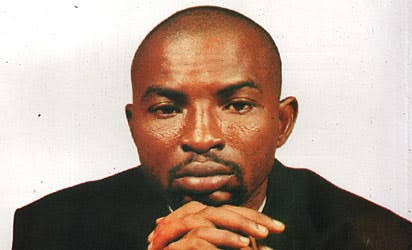
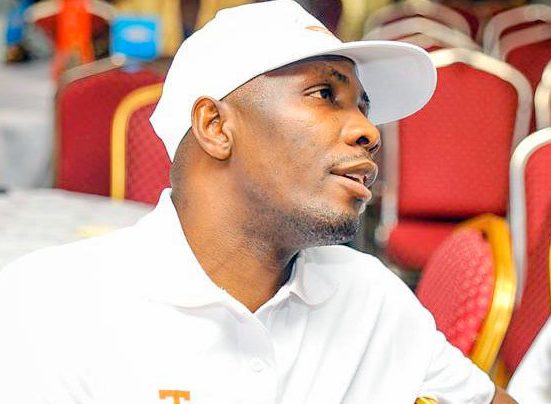
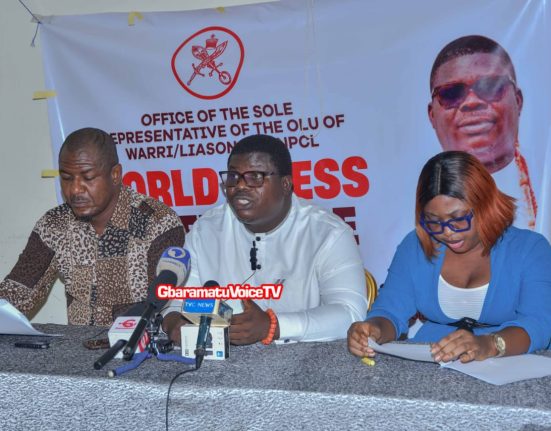
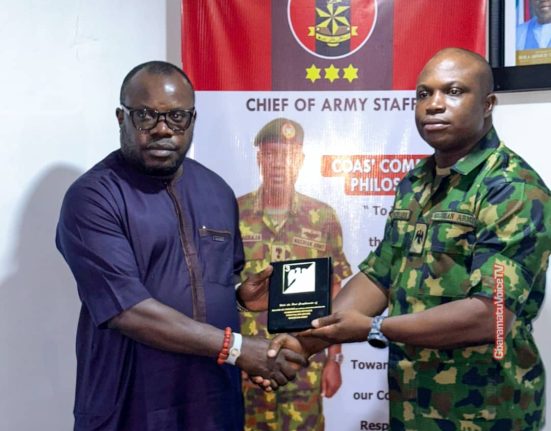
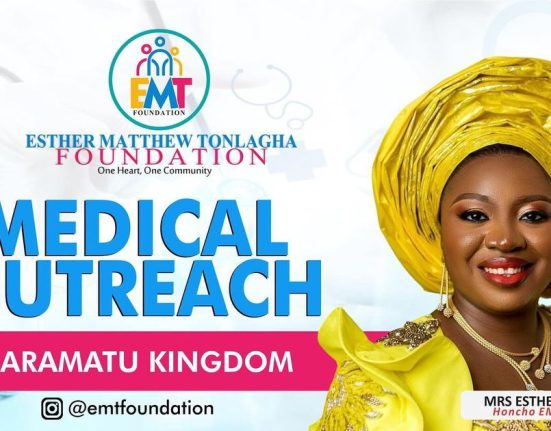


Leave feedback about this
You must be logged in to post a comment.